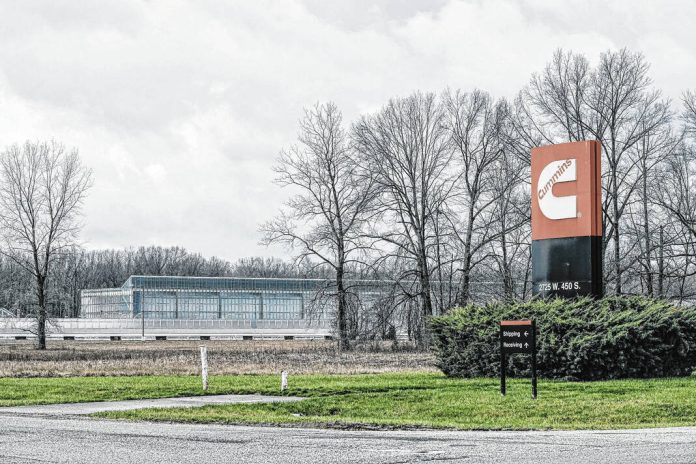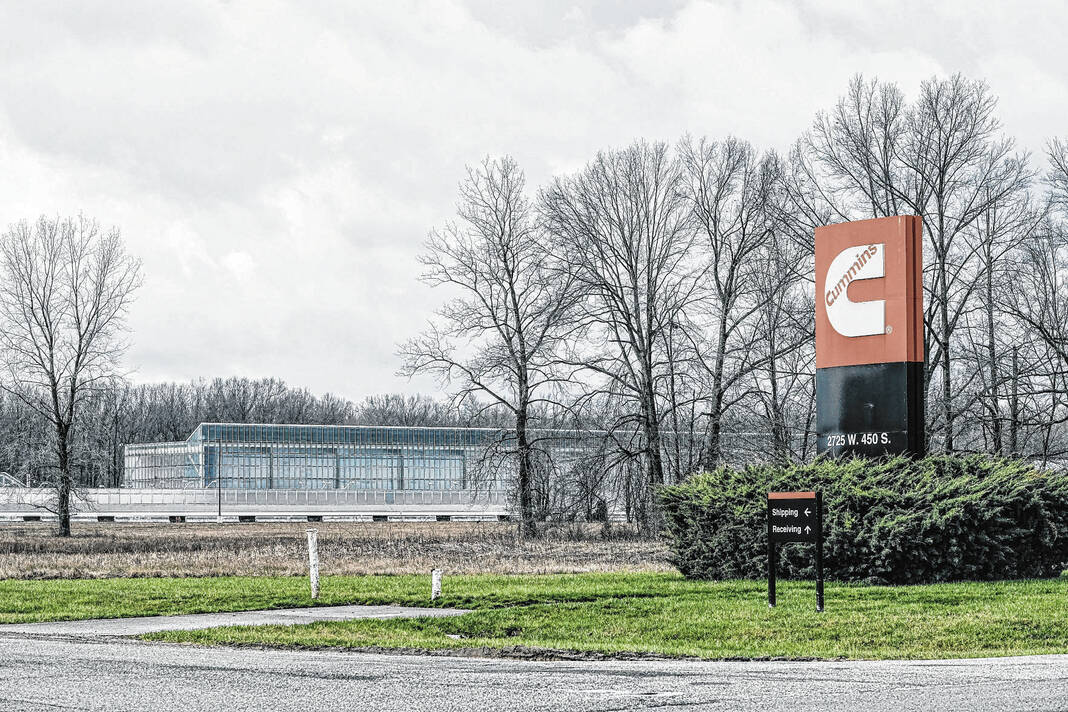
The Cummins midrange engine plant in Walesboro is shown in March 2020. The facility produces engines at the heart of a $1.675 billion settlement that the company and the US Justice Department announced over alleged federal Clean Air Act violations.
Cummins Inc. has agreed in principle to pay a $1.675 billion penalty to settle claims that it “unlawfully altered hundreds of thousands of engines to bypass emissions tests” in what would be the largest penalty ever for a Clean Air Act violation, the U.S. Department of Justice said.
The government said the Columbus-based company allegedly installed emissions defeat devices 630,000 model year 2013 to 2019 RAM 2500 and 3500 pickup truck engines and undisclosed auxiliary emission control devices on 330,000 model year 2019 to 2023 RAM 2500 and 3500 pickup truck engines.
The engines in question were made at the Cummins Mid-Range Engine Plant in Walesboro, Cummins officials told The Republic.
Defeat devices are parts or software that bypass, defeat or render inoperative emissions controls such as emission sensors and onboard computers.
U.S. Attorney General Merrick B. Garland said the agreement would settle allegations that “the company unlawfully altered hundreds of thousands of engines to bypass emissions tests in violation of the Clean Air Act.”
The penalty would be the largest ever for a Clean Air Act violation, and the second largest environmental penalty ever, the Justice Department said.
“The types of devices we allege that Cummins installed in its engines to cheat federal environmental laws have a significant and harmful impact on people’s health and safety,” Garland said in a statement. “For example, in this case, our preliminary estimates suggest that defeat devices on some Cummins engines have caused them to produce thousands of tons of excess emissions of nitrogen oxides.” The EPA says nitrogen oxide pollution damages the human respiratory system and contributes to acid rain, among other things.
Cummins, for its part, said it conducted an extensive internal review, cooperated fully and “worked collaboratively” with regulators on the matter for more than four years and has already addressed many of the issues involved. “The company has seen no evidence that anyone acted in bad faith and does not admit wrongdoing,” Cummins said.
Cummins said it expects to take a charge of around $2.04 billion in the fourth quarter of 2023 to resolve these and other related matters involving approximately 1 million pick-up truck applications in the United States. That includes about $1.93 billion related to payments that are expected to be made in the first half of 2024.
The company said it has already recalled model year 2019 RAM 2500 and 3500 trucks and has initiated a recall of model years 2013 through 2018 RAM 2500 and 3500 trucks and previously accrued a total of $59 million for the estimated costs for executing these and other related recalls.
In April 2019, Cummins disclosed that it was formally reviewing its emissions certification and compliance process for its pickup truck applications following conversations with the U.S. Environmental Protection Agency and the California Air Resources Board regarding certification for the engines in the 2019 RAM 2500 and 3500 trucks, the company said in a press release at the time.
“This review is being conducted with external advisors to ensure the certification process for Cummins pickup truck applications is consistent with its internal policies, engineering standards and applicable laws,” Cummins said in the 2019 press release. “Cummins has voluntarily disclosed the review to our regulators and other agencies and will cooperate with them to ensure a complete and thorough review and implement recommendations for improvement.”
Cummins spokesman Jon Mills told The Republic on Friday that the company is looking forward to concluding the agreement with regulators and is planning to “focus on the future” and decarbonizing its industry.
“We’ve been working collaboratively with the agencies on this for more than four years, almost four-and-a-half years,” Mills said. “We’re pleased to be reaching an agreement and looking forward to concluding it. We have a strong reputation for meeting emissions standards, and we have a strong reputation as a great company, and we’re going to continue to focus on the future. We’re a leader in the decarbonization of our industry, and we’re going to continue to do our part to really help our customers seamlessly and successfully transition and continue to lead.”
Garland said the Justice Department is working to incorporate the agreement into a consent decree that will be filed in U.S. District Court in Washington, D.C. The agreement is subject to regulatory and judicial approvals.







